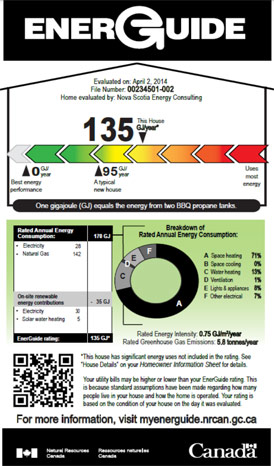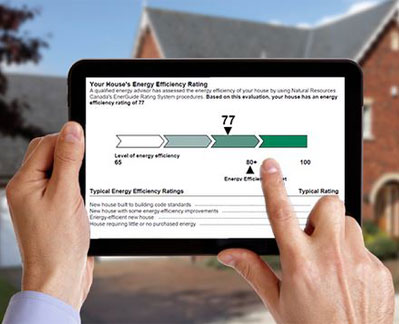
Energy Ratings
Energy ratings are important to you and your home. It signifies the amount of energy that your home, or future home, will be consuming. Less is more. Owning a home that consumes less energy is better for your bank account and for the environment. Less money will be spent on heating and cooling and less natural resources will be spent heating and cooling your home.
Starting in 2017, the energy ratings you receive will use the updated EnerGuide Rating System. The number shown will tell you how much energy in GJ/year is being consumed. You can easily apply this to your current hydro rate to know how much you will likely be spending in the course of a year. In addition to energy consumption, the new version also gives you a detailed report of where your home is leaking or consuming more energy. This allows you to know exactly where you should invest in retrofits, and will help you determine what rebates and grants you qualify for. Finally, you can compare the home to a "reference house" and to other homes on the real estate listings (in 2019). Comparing the home to a "reference house" allows you to know what other houses similar to the one you are looking at should consume.


